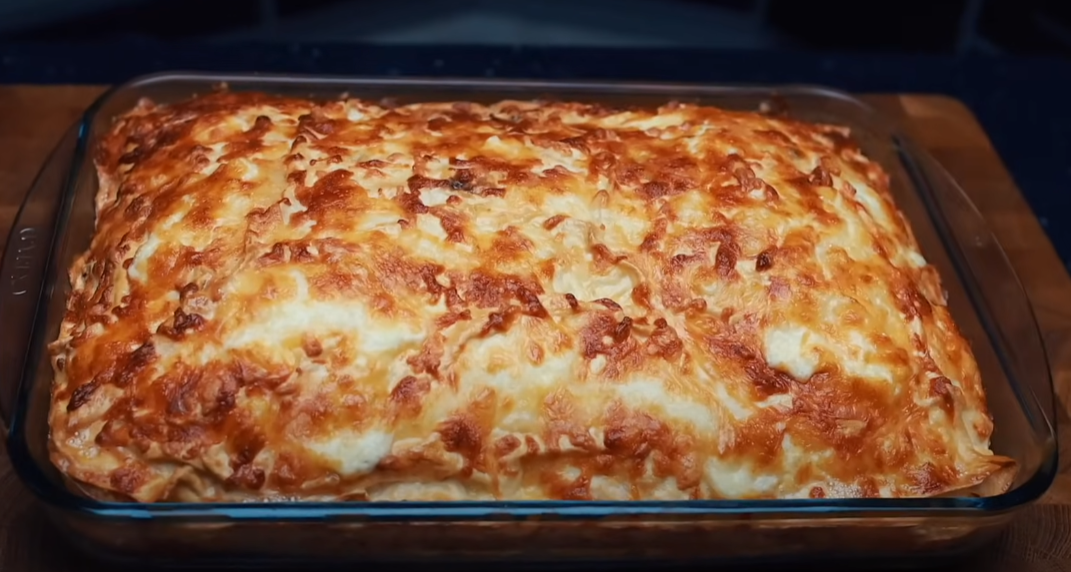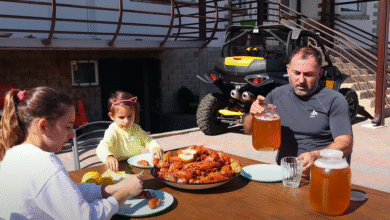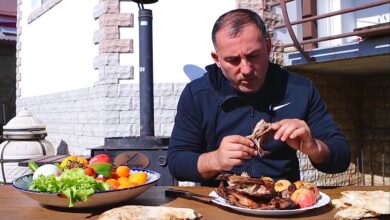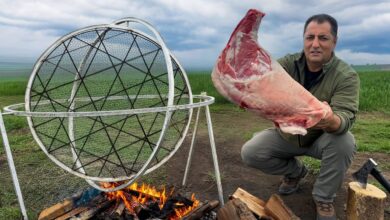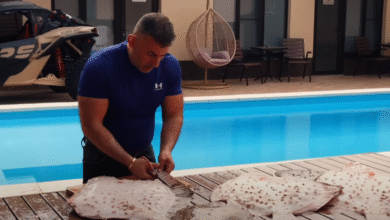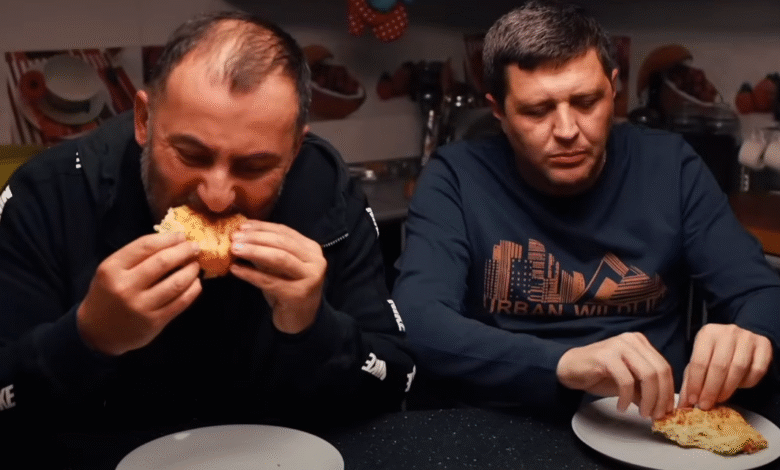
Введение / Introduction
Сырный пирог, или чизкейк — это изысканный десерт с нежной текстурой и насыщенным сырным вкусом. Этот рецепт сочетает традиционные ингредиенты с простым подходом к приготовлению, идеально подходящим для семейных встреч или праздников.
Cheesecake is an exquisite dessert with a creamy texture and rich cheesy flavor. This recipe combines traditional ingredients with a straightforward approach, perfect for family gatherings or celebrations.
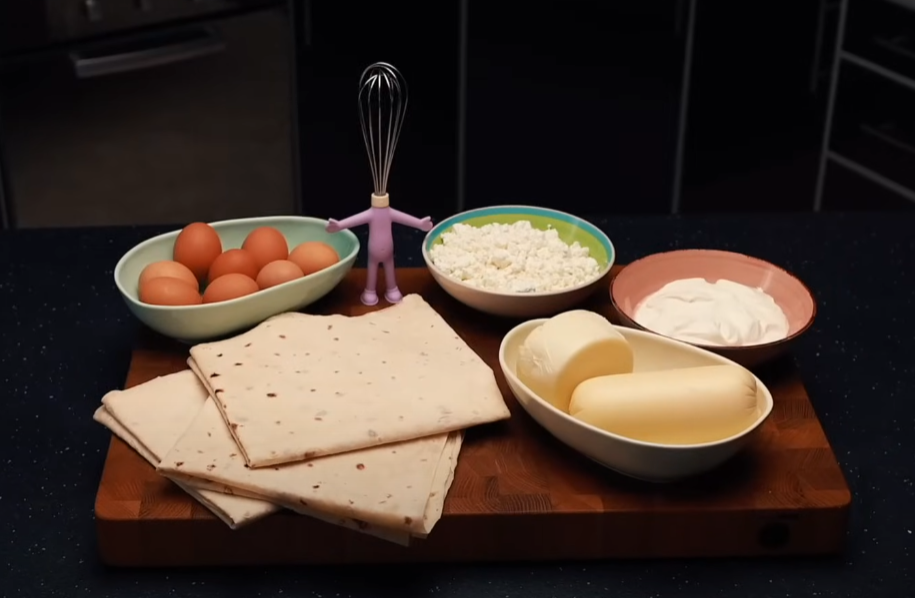
Ингредиенты / Ingredients
| Ингредиенты | Ingredients | Количество / Quantity |
|---|---|---|
| Печенье (песочное) | Shortbread cookies | 200 г / 200 g |
| Масло сливочное | Butter | 100 г / 100 g |
| Сыр сливочный | Cream cheese | 500 г / 500 g |
| Сахар | Sugar | 150 г / 150 g |
| Сметана | Sour cream | 200 г / 200 g |
| Яйца | Eggs | 3 шт. / 3 pieces |
| Ванильный экстракт | Vanilla extract | 1 ч.л. / 1 tsp |
| Лимонный сок | Lemon juice | 1 ст.л. / 1 tbsp |
Инструкции / Instructions
- Подготовка основы / Preparing the crust:
Измельчите песочное печенье в крошку с помощью блендера или ступки. Растопите сливочное масло и смешайте с крошкой. Выложите смесь в форму для выпечки (диаметр 20-22 см), равномерно утрамбовав дно. Поставьте в холодильник на 30 минут.
Crush the shortbread cookies into crumbs using a blender or mortar. Melt the butter and mix with the crumbs. Press the mixture evenly into the bottom of a baking pan (20-22 cm diameter). Refrigerate for 30 minutes. - Приготовление начинки / Preparing the filling:
В большой миске смешайте сливочный сыр, сахар и ванильный экстракт до однородной массы. Добавьте яйца по одному, тщательно взбивая после каждого. Влейте сметану и лимонный сок, продолжая перемешивать до гладкости.
In a large bowl, mix the cream cheese, sugar, and vanilla extract until smooth. Add the eggs one at a time, beating well after each addition. Add the sour cream and lemon juice, mixing until smooth. - Сборка / Assembling:
Вылейте сырную начинку на охлажденную основу из печенья. Разровняйте поверхность лопаткой.
Pour the cheese filling over the chilled cookie crust. Smooth the surface with a spatula. - Выпекание / Baking:
Разогрейте духовку до 160°C. Поставьте форму с чизкейком в большую емкость с горячей водой (водяная баня) и выпекайте 50-60 минут, пока края не станут плотными, а центр слегка подрагивает. Выключите духовку и оставьте чизкейк внутри с приоткрытой дверцей на 1 час.
Preheat the oven to 160°C. Place the pan with the cheesecake in a larger container with hot water (water bath) and bake for 50-60 minutes until the edges are set but the center slightly jiggles. Turn off the oven and leave the cheesecake inside with the door slightly ajar for 1 hour. - Охлаждение и подача / Cooling and serving:
Остудите чизкейк до комнатной температуры, затем уберите в холодильник на 4-6 часов (лучше на ночь). Подавайте с ягодным соусом, взбитыми сливками или свежими фруктами по желанию.
Cool the cheesecake to room temperature, then refrigerate for 4-6 hours (preferably overnight). Serve with berry sauce, whipped cream, or fresh fruit as desired.

